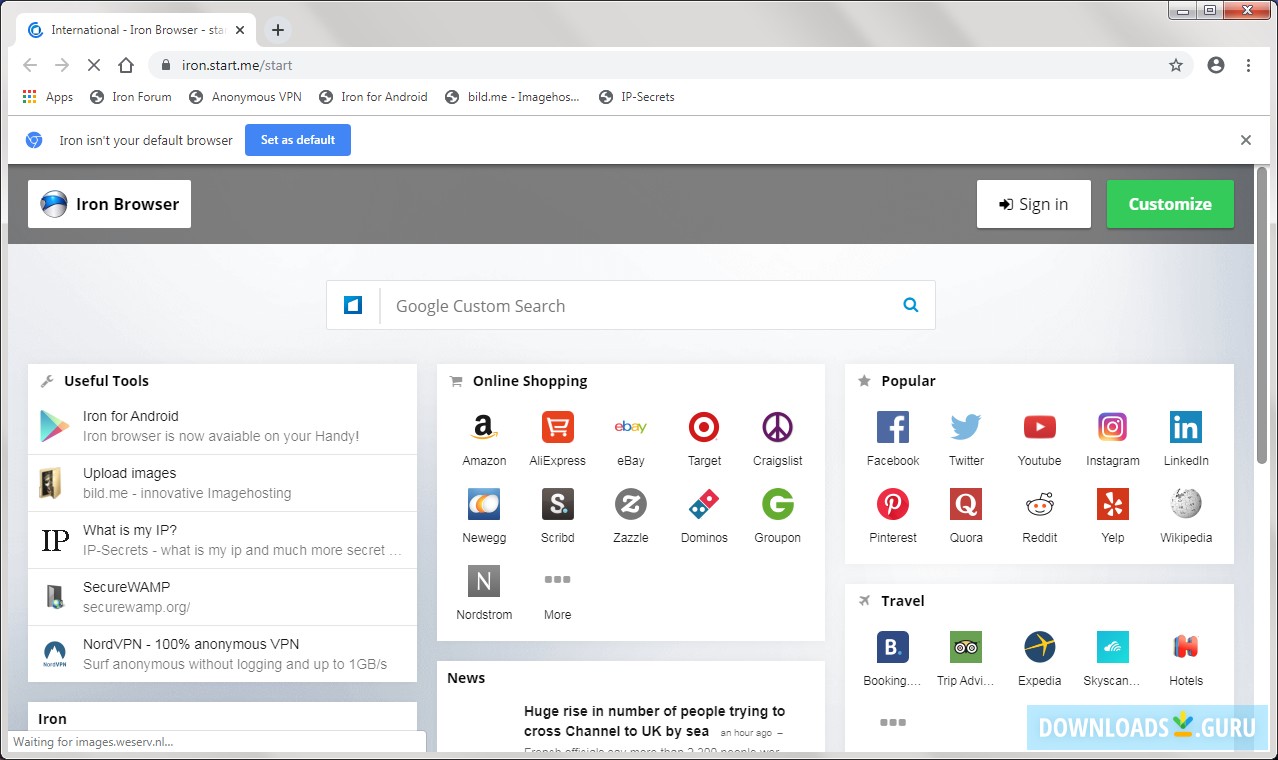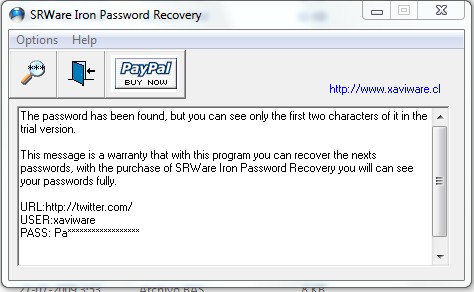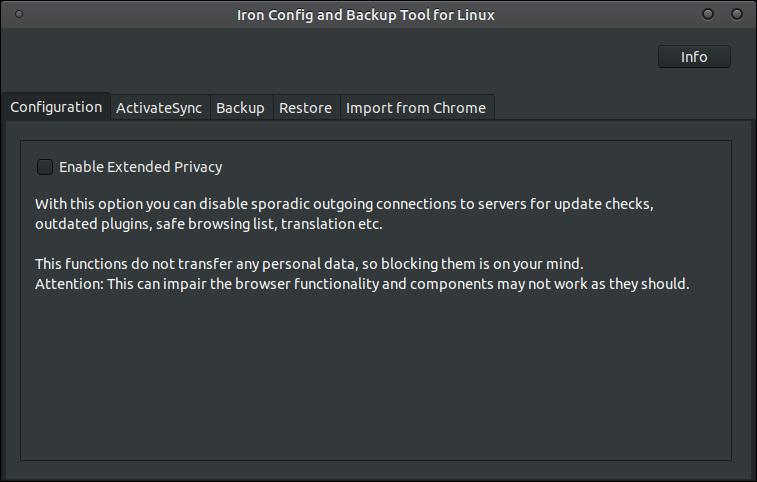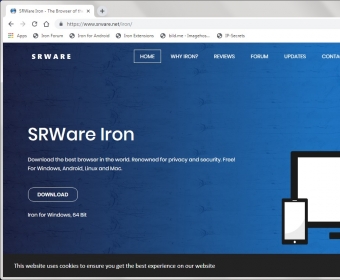
Automatic address bar search suggestions. DNS pre-fetching, because it could potentially be used by spammers. Google-hosted error pages when a server is not present. A timestamp of when the browser was installed. A unique ID ("clientID") for identifying the user in logs. Google search access on startup for users with Google as default search. RLZ identifier, an encoded string sent together with all queries to Google or once every 24 hours. Just try and protect your following Google Chrome features are not present in Iron: Bug tracking system, sends information about crashes or errors. DNS pre-fetching, because it could potentially be used by spammers - Automatic address bar search suggestions. Google-hosted error pages when a server is not present - Google Updater automatic installation. A timestamp of when the browser was installed. Google search access on startup for users with Google as default search - A unique ID ("clientID") for identifying the user in logs. The following Google Chrome features are not present in Iron: - RLZ identifier, an encoded string sent together with all queries to Google or once every 24 hours. Please try the Iron browses and share your findings here with us. It gives the same user experience as Chrome but you don't have to wonder anymore about what Google is doing with your Surf behavior. The browser is based on the Chromium-source and offers the same features as Chrome - but without the critical points that the privacy concern. SRWare Iron is a real alternative for Google Chrome. Google programmer Evan Martin, who contributes to the Chromium project, has his own odd anecdote about Iron, and he points out that the privacy features in Iron are easily emulated by changing a few settings within Chrome (or Chromium) itself.Īpart from its privacy features, SRWare's Iron has some odd and gratuitous changes, such as the replacement of the Chrome app store with SRWare's own.Hi All, Want to bring the following browser to your attention.Iron of SRWare from germany. The most recent version as of this writing was version 16 (dated December 21, 2011). The master builds of Iron itself seem to be kept reasonably current, though. One way to get around the absence of auto-update is to use the PortableApps version of Iron, which can be updated automatically through the PortableApps launcher (although it doesn't always provide you with the most up-to-date edition of Iron). #Update srware iron install#
You're allowed to manually access and browse the Chrome Web Store and install plug-ins directly from there, but it hardly seems necessary to send people somewhere else by default. If you open the extensions page in Iron and click on the "browse the gallery" link, you're taken to, a compilation of Chrome plug-ins collected by SRware, rather than Google's own Chrome extensions gallery.

Some of the changes seem wholly gratuitous.

You are, however, allowed to use Iron with the Google Sync feature so that bookmarks, passwords, and preferences can be synced between copies of Iron.

You have to manually install newer versions of the program, as with Chromium. For instance, Iron does not check for updates automatically, as its creators consider the presence of the updater to be another privacy issue. Iron's emphasis on removing features that allegedly endanger privacy comes at the cost of some functionality. These things - the logging of input in the omnibox, for instance - aren't just disabled by default, but disabled completely they cannot be reactivated.

SRWare Iron One of the more widely discussed variants of Chrome is SRWare's Iron, which, according to its creators, removes all the features that raised hackles with privacy advocates.








 0 kommentar(er)
0 kommentar(er)
